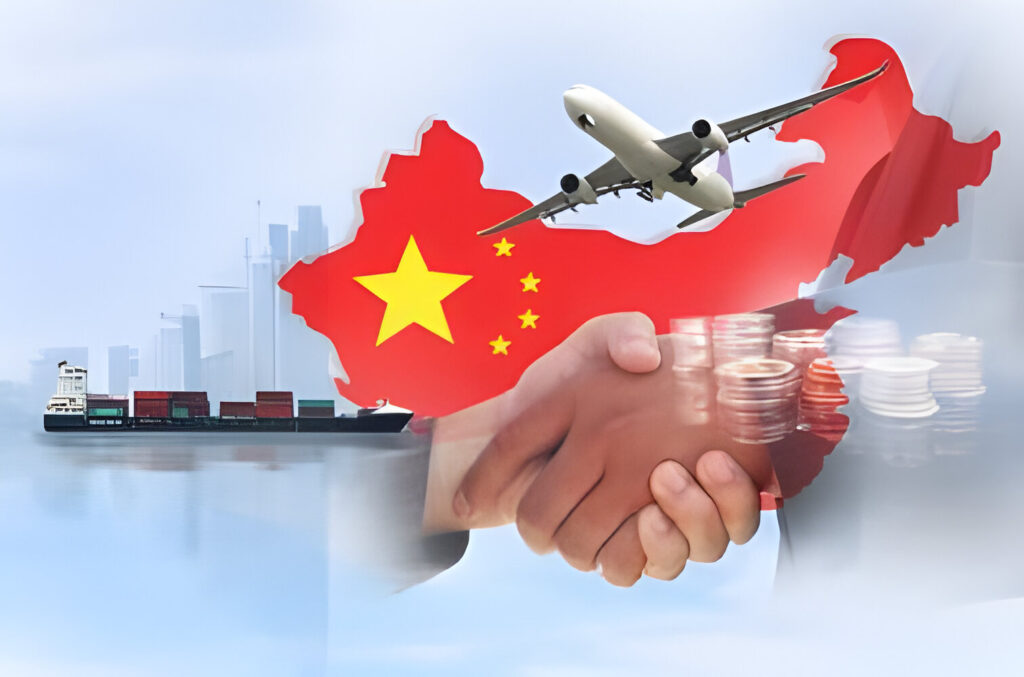Bridging Cultures: Navigating Cultural Aspects in China Imports

Why is understanding culture so vital in international trade? Imagine you’re navigating a ship through unknown waters. Without a map, you risk running aground. Similarly, understanding cultural nuances is your map to successful business in China. Culture shapes every aspect of business, from communication to negotiation. By grasping these nuances, you can foster smoother transactions and stronger relationships.
Historical Context of China’s Trade
China’s rich history of trade dates back thousands of years, with the Silk Road being one of the earliest trade routes connecting the East and West. This historical backdrop has ingrained a deep respect for commerce and relationships in Chinese culture. Understanding this context helps appreciate why long-term relationships and trust are so valued in Chinese business practices today.
Key Cultural Concepts in Chinese Business
Guanxi (关系)
At the heart of Chinese business culture is guanxi, which translates to “relationships” or “connections.” This concept emphasizes the importance of networks and reciprocal obligations. Building guanxi can lead to preferential treatment and smoother business dealings.
Mianzi (面子)
Mianzi, or “face,” refers to a person’s reputation and social standing. Maintaining face is crucial in Chinese culture. Publicly praising your Chinese partners can enhance their mianzi, while public criticism can be detrimental.
Communication Styles
Indirect Communication
In China, indirect communication is often preferred over direct confrontation. Phrases might be more nuanced, and reading between the lines is essential. For instance, a polite “maybe” might actually mean “no.”
Non-Verbal Cues
Body language and other non-verbal cues play a significant role. A smile or a nod can convey agreement or understanding, even if no words are exchanged. Pay close attention to these subtle signals.
Relationship Building
The Role of Trust
Building trust is a foundational element in Chinese business culture. Unlike some Western practices where deals are transaction-based, Chinese business relationships are more personal and long-term. Spending time to get to know your partners outside the business context can foster deeper trust.
Social Activities
Engaging in social activities such as dinners, karaoke, or tea ceremonies is common. These settings are where real business decisions often take place, beyond the formal meeting rooms.
Negotiation Tactics
Patience is Key
Negotiations in China can take longer than in the West. Patience is seen as a virtue, and rushing can be perceived as disrespectful. Be prepared for prolonged discussions and avoid showing frustration.
Price Haggling
Price negotiation is expected. Initial offers are often high, with the expectation that there will be some back-and-forth bargaining. Approach this with flexibility and an open mind.
Understanding Hierarchies
Respect for Authority
Chinese businesses often have strict hierarchical structures. Understanding and respecting these hierarchies is crucial. Address senior members first and show deference to their opinions.
Decision-Making Processes
Decisions may take longer as they often require consensus from multiple levels of hierarchy. Being patient and respectful during this process can help in securing a positive outcome.
Gift-Giving Etiquette
Appropriate Gifts
Gift-giving is a common practice in Chinese business culture. Choose gifts that reflect respect and appreciation. Avoid gifts that are overly expensive as they might be seen as bribes.
Presentation Matters
The way a gift is presented is as important as the gift itself. Use both hands when giving or receiving a gift, and avoid wrapping gifts in white or black paper as these colors are associated with funerals.
Managing Expectations
Setting Realistic Goals
Understanding the pace at which Chinese businesses operate can help in setting realistic expectations. Overpromising and underdelivering can damage trust and relationships.
Clear Communication
Ensure that all agreements are clearly communicated and understood. Misunderstandings can arise due to language barriers, so confirm details in writing when possible.
The Future of China Imports
Emerging Trends
With the rise of e-commerce and technological advancements, the landscape of China imports is changing. Staying updated on these trends can provide new opportunities for businesses.
Sustainability
Sustainability is becoming increasingly important. As global awareness of environmental issues grows, Chinese manufacturers are adapting to more sustainable practices. Aligning with these practices can enhance business reputations.
Conclusion
Navigating the cultural aspects of China imports is like learning a new language. It requires patience, respect, and a willingness to understand different perspectives. By appreciating these cultural nuances, businesses can build stronger, more effective relationships and ensure smoother operations.
FAQs
- Why is guanxi important in Chinese business?
Guanxi is crucial because it emphasizes the importance of relationships and networks, which can lead to preferential treatment and smoother business dealings. - How should I approach negotiations in China?
Be patient and flexible. Understand that negotiations can take time and involve back-and-forth bargaining. Patience and respect are key. - What is the significance of gift-giving in China?
Gift-giving reflects respect and appreciation. Choose appropriate gifts and present them thoughtfully, using both hands. - How can I build trust with Chinese business partners?
Spend time getting to know your partners outside of business settings. Engage in social activities and show genuine interest in their culture and customs. - What are common pitfalls to avoid in China imports?
Avoid ignoring cultural differences and being impatient. Respect the local customs and be open to adapting your business practices to align with Chinese cultural expectations.
Recent Posts
- Budget-Friendly Imports: Strategies for Cost Control When Importing Goods From China
- Bridging Cultures: Navigating Cultural Aspects in China Imports
- Guide to working with a sourcing agent in China for startups
- How China Sourcing Agents Can Transform Your Business
- Exploring the Benefits of Collaborating with a China Sourcing Agent







Recent Comments